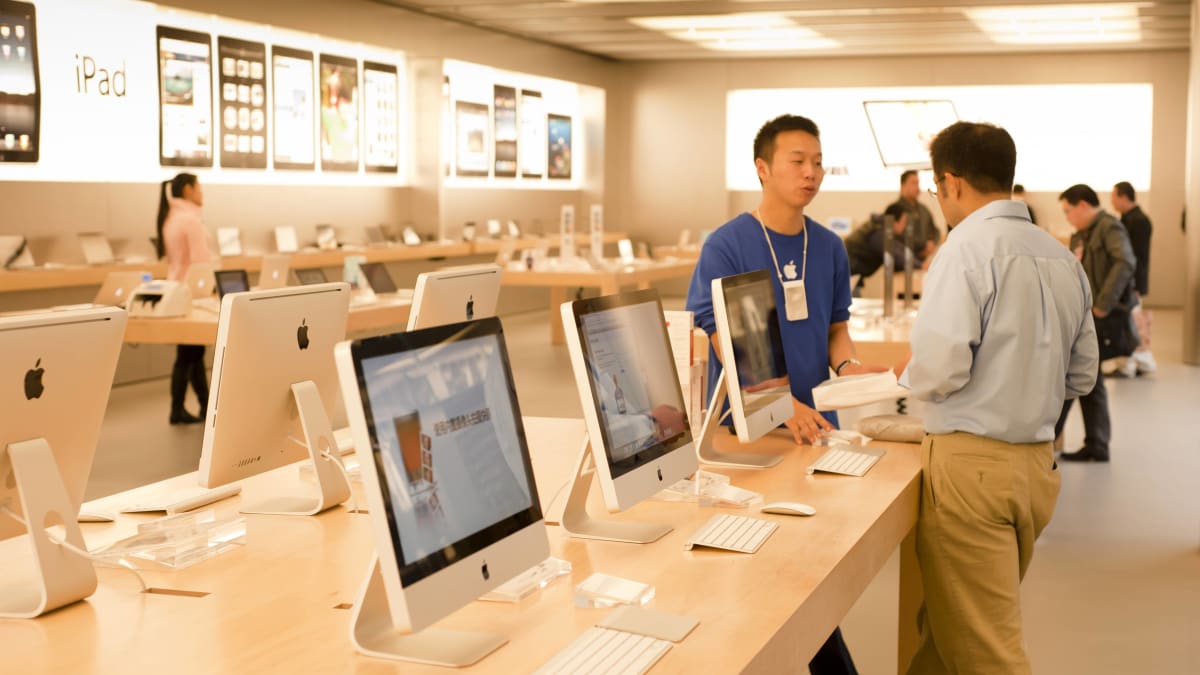
From airbags in cars to steel-belted radial tires, cobalt can be found in a wide variety of items.
But the primary use of cobalt across the world is in rechargeable battery electrodes.
DON'T MISS: Apple Made $7 Billion Worth of iPhones in This Country in 2022 (It's Not China)
Cobalt is one of the key materials used in lithium-ion batteries for cell phones, notebook PCs, battery-electric cars, and hybrids.
Apple (AAPL) said that it will use only recycled cobalt in batteries by 2025 as a part of the computer giant's plan to make all its products carbon neutral by the end of the decade.
According to the company, the magnets in its devices will use recycled rare earth elements and company-designed printed circuit boards will use 100% recycled tin soldering and 100% recycled gold plating.
A quarter of all cobalt used in Apple products came from recycled material in 2022, up from 13% a year earlier, the company said.
Finding New Sources
CEO Tim Cook said that “great technology should be great for our users and for the environment.”
Apple now sources over two-thirds of all aluminum, nearly three-quarters of all rare earths, and more than 95% of all tungsten in its products from recycled material.
Since first introducing recycled rare earths in the Taptic Engine of iPhone 11, Apple said it has expanded its use of the material across its devices, including in all magnets found in the latest iPhone, iPad, Apple Watch, MacBook, and Mac models.
Cobalt is a controversial issue that has proven to be a problem for the tech sector.
The Democratic Republic of the Congo provides around 70% of the global cobalt supply and the mining of this material has been linked to harsh working conditions and child labor.
According to a 2016 Amnesty International Report, children use very primitive tools and their bare hands to search for rocks containing cobalt. They are also tasked with cleaning the ore before it is sold.
The report said companies along the cobalt supply chain are failing to conduct adequate human rights due diligence.
Mining Controversy
In 2019, International Rights Advocates filed a lawsuit against Apple, Alphabet (GOOGL), Dell (DELL), Microsoft (MSFT), and Tesla (TSLA) on behalf of 14 plaintiffs who are either guardians of children killed in tunnel or wall collapses while mining cobalt in the DRC or children who were maimed in these accidents.
A federal judge in Washington D.C. dismissed the suit, ruling, among other things, that there was no causal relationship between the companies and the individuals' injuries.
Terry Collingsworth, IRAdvocates' executive director, said that he had argued the case in appeals court in December and expects an opinion soon.
Tesla confirmed last year that nearly half of all its vehicles produced last quarter are already using cobalt-free iron-phosphate (LFP) batteries, according to Electrek.
The electric vehicle maker recently suggested that it has three new vehicles in the works, including a van that would require higher energy density chemistries, or high nickel, which refers to low-to-zero cobalt nickel Manganese cathodes.







